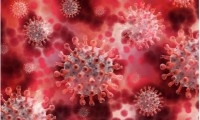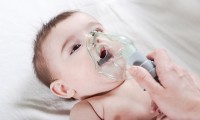-
Turmeric supplement accelerates post-match recovery in elite footballers
- Source: drugdu
- 115
- June 13, 2023
-
Researchers uncover new insights into why individuals are affected differently by COVID-19 infection
- Source: drugdu
- 104
- June 13, 2023
-
After recent troubles, Catalent expands its biologics services platform
- Source: drugdu
- 106
- June 12, 2023
-
AstraZeneca to stop post-marketing study of Andexxa following early success
- Source: drugdu
- 105
- June 11, 2023
-
Sanofi, AstraZeneca’s RSV antibody for infants easily clears FDA adcomm, likely setting up approval
- Source: drugdu
- 161
- June 10, 2023
-
’ Seagen CEO talks about his next stop, Pfizer deal and the ADC landscape
- Source: drugdu
- 179
- June 10, 2023
-
FDA advisers endorse antibody to protect against RSV in infants and some young toddlers
- Source: drugdu
- 116
- June 10, 2023
-
Philips faces new recall of Evo respirators, tagged Class I by FDA
- Source: drugdu
- 124
- June 9, 2023
-
GSK’s RSV vaccine approved by EC for older adults
- Source: drugdu
- 111
- June 9, 2023
-
Study identifies two brain mechanisms for picking speech out of a crowd
- Source: drugdu
- 124
- June 8, 2023
your submission has already been received.
OK
Subscribe
Please enter a valid Email address!
Submit
The most relevant industry news & insight will be sent to you every two weeks.













